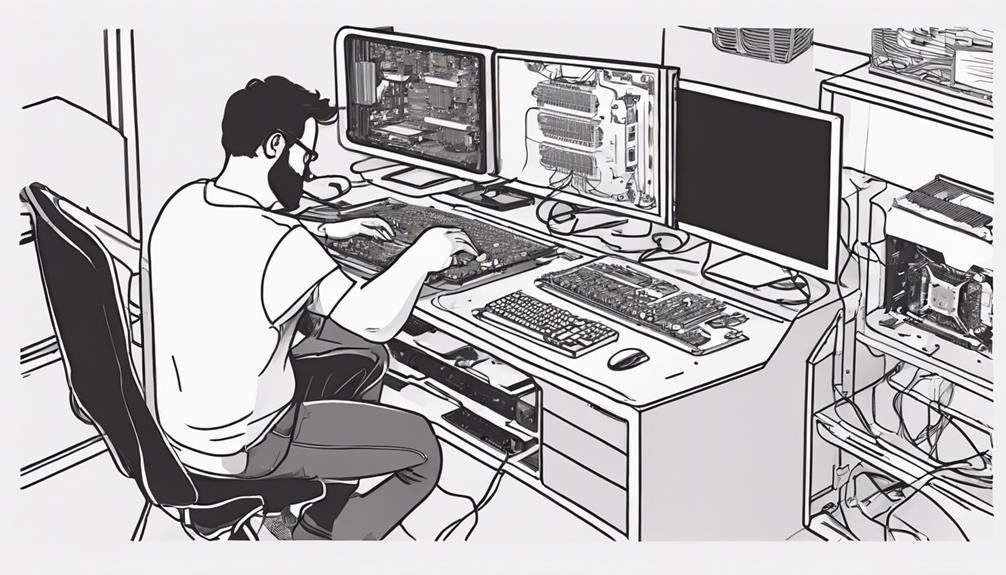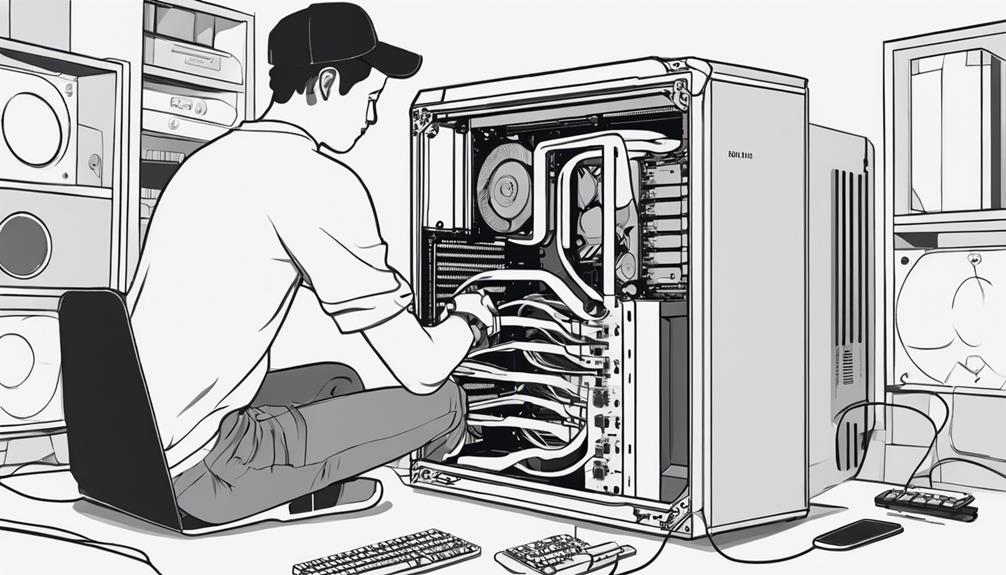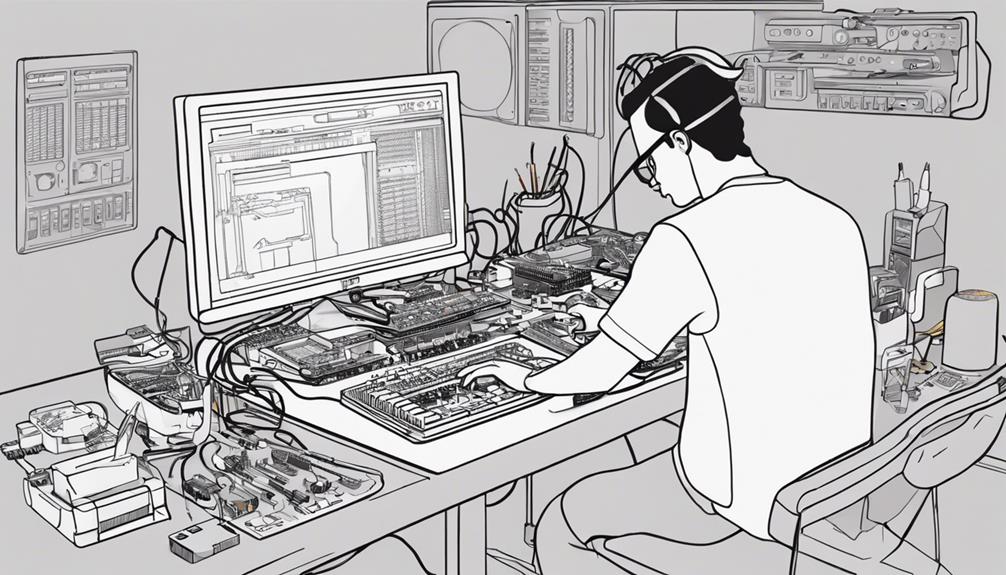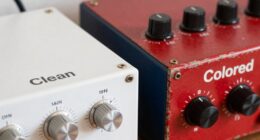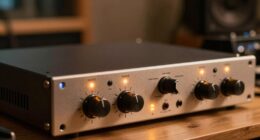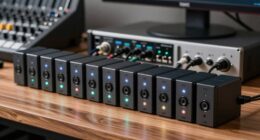Did you know “The Sound of Music” film made a huge splash in cinemas? It started with a budget of $8.2 million but ended up earning $286.2 million at the box office1. This hit musical won over audiences around the world, selling 283 million tickets. It was shown in theaters for over four years. By November 1966, it beat “Gone with the Wind” as the top-grossing film ever. It broke records in 29 countries1. The film grabbed five Academy Awards, including Best Picture and Best Director. In 2001, it was added to the United States Library of Congress’ National Film Registry for preservation1.
It all started with a German movie called “The Trapp Family” in 1956. This film was a hit in West Germany, Europe, and South America. Thanks to its success, a sequel named “The Trapp Family in America” was made1.
Get set to witness the Sound-of-Music-Show live! Dive into a thrilling musical journey, celebrating Disney’s most beloved animated movies. Enjoy the classic tunes and uplifting scenes that have charmed audiences everywhere.
Key Takeaways:
- “The Sound of Music” started with a $8.2 million budget and raked in $286.2 million, becoming the biggest film by November 19661.
- The movie sold 283 million tickets worldwide and enjoyed a theatrical run of over four years1.
- It won five Academy Awards, including Best Picture and Best Director, and got a spot in the US Library of Congress’ National Film Registry1.
- The success of the original German adaptation, “The Trapp Siily,” led to the creation of “The Trapp Family in America.”1
Experience the Magic of Disney Animations
Disney in Concert – The Sound of Magic brings Disney animations to life in a magical concert. It showcases the beauty and imagination of Disney.
This show highlights the great music from Disney’s animated hits. Audiences enjoy a collection of beloved songs2. The music tells stories from Walt Disney Animation Studios and Disney Theme Parks.
Imagine diving into the world of Frozen and following Elsa and Anna’s journey. Feel the excitement of Aladdin’s adventures in Agrabah. Or journey with Moana as she finds her identity.
Experience Peter Pan’s magical flights and The Jungle Book’s beats. Each act transports you into Disney’s unforgettable tales3. There’s something for every Disney lover.
Extra magic comes from special guests like Gail Ann Dorsey and Nate Wood, Bowie’s bandmates2. Their talent makes the concert even more thrilling.
Under Jules Buckley’s baton, this concert creates a symphony that captures Disney’s spirit2. Get ready for a journey through Disney’s enchanting melodies and stories.
An Enchanting Celebration of Disney’s Greatest Hits
Disney: The Sound Of Magic takes you on a magical journey. It carries you through the most cherished Disney films. From Frozen to Encanto and Aladdin to The Lion King, this show spotlights the famous songs we all love.
It creates a mood where we all celebrate together. It brings up the good times and tunes we remember. This show tells us we’re part of Disney’s wide world of magic, despite our differences.
Disney: The Sound Of Magic brings over 70 Disney songs to life4. The show lasts about 90 minutes and is a treat for kids six and up4. It’s also designed to be accessible for People with Reduced Mobility (PMR)4.
The production is breathtaking with live orchestra, stunning costumes, and captivating effects4. You’ll feel like you’re stepping into your favorite Disney tales.
If you have specific needs, the show is ready for you. It includes special performances for neurodivergent viewers and offers ticket policies for easy refunds or exchanges4.
The performance includes loud noises and bright lights. But it takes care to make everyone comfortable. It offers assisted listening devices and wheelchair access among other features4.
Dive into Disney’s memorable songs. Explore jazz’s impact on Disney, from Louis Armstrong to Duke Ellington5. See how “Soul of Jazz” at Epcot honors jazz’s rich history5.
Don’t miss out on Disney: The Sound Of Magic. This magical show will whisk you away to a place where dreams are real. It is a celebration of Disney’s timeless songs that bring happiness and wonder.

Dates and Venue Information
See the magic of The Sound-of-Music-Show on July 20, 2024. It’s at The Rady Shell at Jacobs Park in San Diego, CA. This place is known for its great shows, making it perfect for this live concert.
Tickets start at $55 for an amazing night of Disney’s best songs. The average ticket is $85.58, with prices ranging from $22.68 to $540.006. You can find tickets as low as $29, going up to $179 at different venues6.
This show will have 15 events in 2024, thrilling people in various cities. Get ready for an experience full of great melodies and performances.
The next show is on June 28th, 2024, in West Windsor Township, NJ at the Kelsey Theatre At Mercer. Prices are $57.47, with only 5 tickets left6. Don’t miss out on this night to remember.
The year’s final show will be on August 16th, 2024, in Vienna, VA at The Barns At Wolf Trap. Tickets are from $22.68 to $540.00, with only 398 left6.
In Thousand Oaks, see it at the Fred Kavli Theatre, where tickets are $23 to $92 with 3019 seats available6. Or, try the Kelsey Theatre in West Windsor Township. It has 78 seats, and tickets are $62 to $756.
Buy tickets from TicketSmarter, rated 4.6/5.0 by users. They guarantee every ticket6. Get your ticket now and enjoy the The Sound-of-Music-Show.
The Trapp Family Story behind The Sound of Music
The Sound of Music, a beloved musical and film, tells the true Trapp family story. In 1938, they bravely left Germany and Austria to avoid the Nazi regime7. Their journey to freedom in the United States has inspired many. The musical, starting in 1959, was based on Maria von Trapp’s 1949 memoir
“The Story of the Trapp Family Singers.”7 While the movie shows a thrilling escape, the real move was quieter8. Yet, the musical celebrates the Trapps’ strength, talent, and love for music.

Georg von Trapp and Agathe Whitehead’s story began in 19127. They had three kids: Rosmarie, Eleonore, and Johannes. Eventually, the family included 10 children7. Their musical skill won them first at the 1936 Salzburg Music Festival7.
In 1938, the Nazis annexed Austria, changing the von Trapps’ lives. They left for the U.S. in 1939, seeking a better life7. They left their old home behind and arrived in New York City in October
Maria Kutschera, later Maria von Trapp, played a key part in their journey. Though the movie changed her story, her past influenced her life and marriage to Georg7. Her bond with the children helped them overcome many challenges7.
The Trapp family’s story has moved many worldwide. It showcases their strength, passion for music, and family bonds. The Sound of Music, in both musical and film forms, immortalizes their tale. It highlights their extraordinary experiences and timeless journey89.
The Sound of Music: In Concert at the Trapp Family Lodge
The Trapp Family Lodge in Stowe, Vermont, will host a special “The Sound of Music” concert. This musical has won hearts for years. At the Lodge, people will experience its magic live, where the von Trapp family lived.
The Lodge’s history adds charm to the event. Here, you’ll step into Maria and the von Trapp kids’ world. Surrounded by Vermont’s beauty, it’s a chance to dive into the classic songs and story.
This concert celebrates big anniversaries. It marks 75 years since “The Story of the Trapp Family Singers” was published. The play’s 65th Broadway anniversary, Lyric Theatre’s 50th season, and the Vermont Symphony Orchestra’s 90th are also celebrated. It’s a big moment for the arts.
The Lodge can hold 1,850 people10. If it rains, the Flynn in Burlington will be the backup, seating 1,41110. A 41-member orchestra and gifted singers will perform, making the music alive.
This isn’t a full play but a concert of the music. Without props or costumes, the songs’ beauty shines. It’s a unique way to connect with the music we love.
“Shine only” tickets add to the event’s appeal. They offer outdoor fun with a refund option if it rains. This thoughtful detail ensures a great time, no matter the weather.
The Trapp Family Lodge is more than history. It offers an inn, food places, and a brewery10. It’s a spot to explore the story behind “The Sound of Music.”
By celebrating the anniversaries, guests honor Lyric Theatre and VSO’s efforts10. These groups have spent years making great music experiences. This event shows their love for art.
This concert reaches beyond just celebrating. It touches on serious topics like gender roles and loss10. It reminds us why “The Sound of Music” still matters to all ages.
Rodgers and Hammerstein created songs that stay with us10. Their work explores deep issues, encouraging us to think and talk. It proves music’s power in discussing life’s big themes.
Statistics Summary:
| Statistics | Reference |
|---|---|
| Number of sold-out concert performances at Trapp Family Lodge | 1 |
| Capacity of Trapp Family Lodge’s meadow | 1,850 |
| Seating capacity of the indoor rain site at The Flynn in Burlington | 1,411 |
| Number of members in the VSO orchestra | 41 |
| Total capacity of the auction | 7,500 |
| Anniversaries celebrated: Lyric Theatre’s 50th season, VSO’s 90th season, 75th anniversary of “The Story of the Trapp Family Singers” book, and 65th anniversary of the Broadway show | 1 |
At the Trapp Family Lodge concert, you’ll dive into “The Sound of Music” like never before. Vermont’s beauty adds to the von Trapp family’s tale and iconic songs. Celebrating anniversaries and music, it’s a unique experience for all.
Don’t miss this magical music event. It’s a chance to be part of something special. Join and feel the joy of “The Sound of Music” in a new way.

Unparalleled Musical Experience with Orchestra and Soloists
Get ready for The Sound of Music: In Concert, a truly special event. It offers an unmatched musical experience. Andrew Crust leads as conductor, he’s Music Director for the Vermont Symphony Orchestra (VSO)11. This concert makes the classic movie musical come alive on stage.
Stefanie Weigand11 guides the vocal talent, treating audiences to unforgettable songs from the film. Her skilled direction ensures each note hits the mark, lifting the concert higher.
The concert features a full orchestra11. Their sound fills the air, adding depth to beloved tunes. Talented voices and soloists join in, making the music come alive. You’ll feel like you’re with the von Trapp family.
The soloists stand out with their powerful voices and presence, bringing characters to life. Together with the orchestra and careful guidance, they create a captivating experience. The performance invites you right into the von Trapp family’s world.
The Sound of Music: In Concert will sweep you off your feet. You’ll be amazed by the vocals, the music, and the direction11. Don’t miss this chance to see this cherished musical on stage.
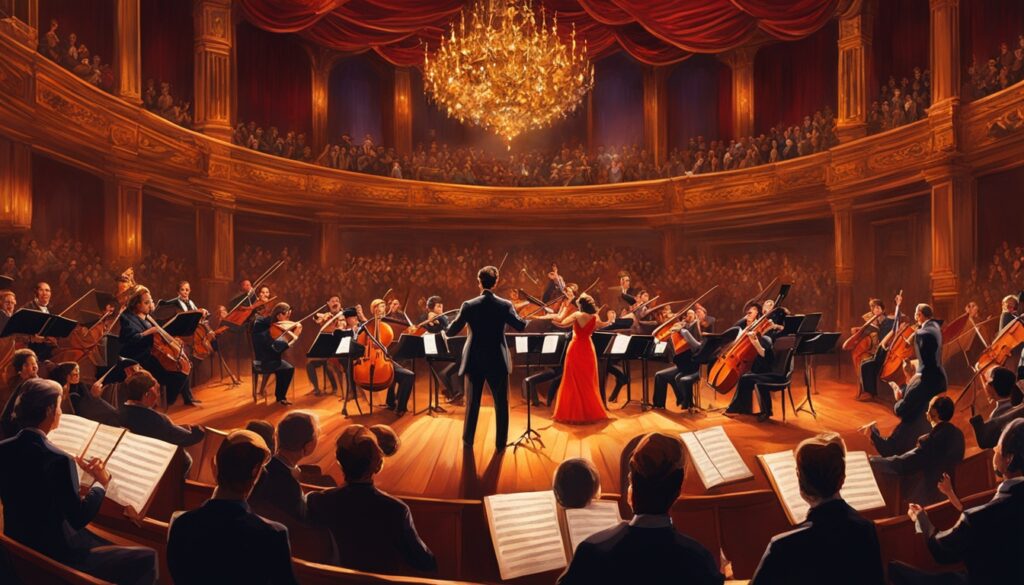
| Statistical Data | Reference |
|---|---|
| The Sound of Music: In Concert is conducted by Andrew Crust, the Music Director for the Vermont Symphony Orchestra (VSO) | 11 |
| Vocal direction is handled by Stefanie Weigand | 11 |
| The concert features a full orchestra and talented soloists | 11 |
VIP Experience at the Trapp Family Lodge Concert Meadow
VIP ticket holders for The Sound of Music: In Concert get a special experience. They have the best seats come rain or shine12. They also get a comfy camping chair for the show12.
They receive a signed “Maria: My Own Story” book by the Trapp family12. The VIP time ends with a meet-and-greet. Here, guests can chat with the Trapp family and enjoy treats12.
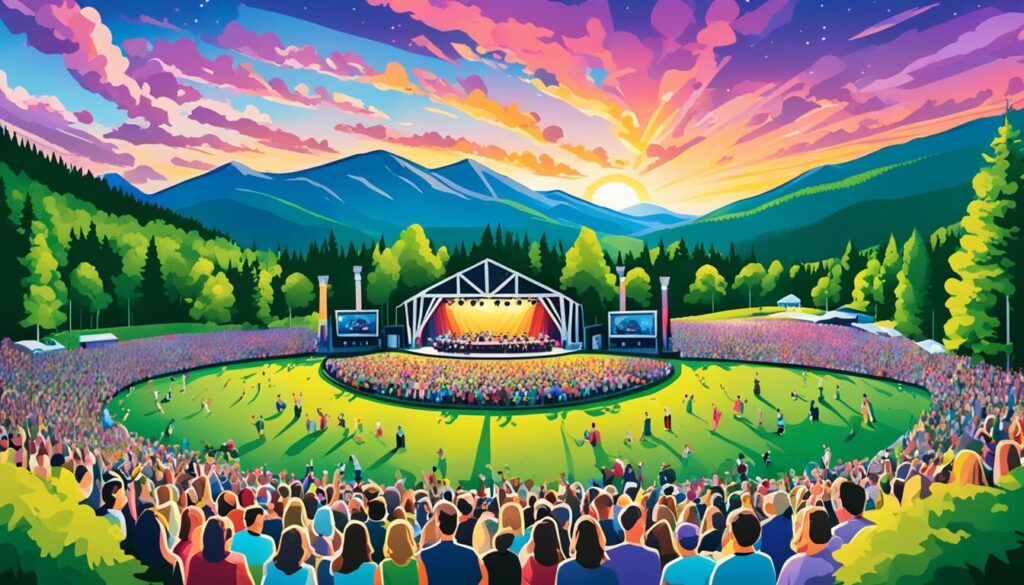
For tickets or more info, visit www.flynnvt.org, www.vso.org, or www.lyrictheatrevt.org.
Inclement Weather Contingency Plan
If bad weather hits, The Sound of Music: In Concert at Trapp Family Lodge Concert Meadow moves to the Flynn in Burlington. This plan ensures fans still get to see the show no matter the weather13.
Moving to the Flynn in Burlington means everyone stays dry and comfortable. It keeps the event running smoothly, even if the weather protests13.
This change makes sure no one misses the magical songs of The Sound of Music13.
The show on June 22 also has sign language. This makes it open to more fans13.

Contingency Plan in Action
Storms or heavy rain make the Concert Meadow a bad spot. By moving to the Flynn, fans enjoy the show worry-free. Our main focus is keeping fans happy and safe. We want them to have a great time, regardless of the weather13.
Event plans often look at risks like bad weather. This might mean moving the event indoors.
Audience Accessibility
Accessibility matters to The Sound of Music: In Concert. The June 22 show steps it up with sign language. This means those who are hard of hearing can join in the fun and music13.
Tech problems, like with sound or lights, also need backup plans.
Adding sign language shows our commitment to welcoming everyone. Everyone gets to enjoy the unforgettable songs and scenes13.
| Contingency Plan Highlights |
|---|
| Relocation to the Flynn in Burlington |
| American Sign Language (ASL) interpretation on June 22 |
- Plans tackle risks like weather and tech troubles. This guarantees a fun event for all13.
- The Sound of Music: In Concert focuses on making shows accessible. Sign language interpretation ensures everyone can join in13.
- Reviewing and updating plans is important. This keeps them current and effective13.
Share the Magic and Stay Updated
Feel the magic of The Sound of Music: In Concert and tell everyone on social media. Make it a time to remember with friends and family. Share this incredible musical journey and spread happiness kkk.
Stay in the loop with future events by signing up for our newsletter. You’ll get the latest news and special deals right away. This way, you’ll always be one of the first to hear about new shows14.
Your information is safe with us. We take your privacy seriously and protect your data well. For more on this, check out our detailed cookie policy14.

| Social Media Platforms | Email News and Updates |
|---|---|
| Email newsletters | |
| Special event announcements | |
| Exclusive offers | |
| Behind-the-scenes content |
Join us on social media like Facebook, Twitter, Instagram, and Pinterest. Dive into fun content and talk to other fans. Being part of our community keeps you in the know14.
Get newsletters with all the latest show news and special deals. By subscribing, you make sure to hear about offers first. Don’t miss out. Sign up to get the best seats14!
Conclusion
Don’t miss the magic of the Sound-of-Music-Show live! This show brings Disney’s timeless tales and tunes right before your eyes. It’s perfect for both classic Disney lovers and fans of the latest hits. Every part of this event, from the settings to the songs, promises an unforgettable adventure into Disney wonders. Get your tickets today and get ready for the Sound-of-Music-Show to capture your heart!
The Sound of Music has been a fan favorite since its first showing in New York on March 2, 1965. It grabbed five Oscars, including Best Picture, at the 38th Academy Awards. With a runtime of 174 minutes, the film showcases Julie Andrews’ amazing talent, winning over viewers15. Directed by Robert Wise, it features beautiful scenes from Salzburg and the Austrian Alps15. Its story, inspired by true events about Maria and the Von Trapp family, still touches hearts worldwide15.
But there’s more to The Sound of Music than just the film. It began as a Broadway musical in 1959, thanks to Maria Trapp’s book published in 194916. While the musical changes some story aspects, it remains a much-loved show16. It even includes the real-life detail of Georg von Trapp using a whistle for his family, showing its attention to authenticity16.
Some critics in Austria aren’t happy with how their culture and history are shown in The Sound of Music. However, hits like “Do-Re-Mi,” and “Climb Every Mountain” still bring joy to many17. Julie Andrews and Christopher Plummer shine as Maria and Captain Von Trapp, despite some saying the characters lack depth17. And while the movie might seem a bit too perfect for some, its core message about chasing dreams remains comforting to many17.
FAQ
Is The Sound-of-Music-Show a live performance?
What can I expect from The Sound-of-Music-Show?
When and where is The Sound-of-Music-Show?
How much do tickets for The Sound-of-Music-Show cost?
Is The Sound-of-Music-Show based on a true story?
Where does The Sound of Music: In Concert take place?
Who conducts The Sound of Music: In Concert?
What is included in the VIP ticket experience for The Sound of Music: In Concert?
What happens if there is inclement weather for The Sound of Music: In Concert?
How can I share the magic of The Sound of Music: In Concert?
Where Can I See the Sound-of-Music-Show Live and Meet the Cast?
You can catch the iconic sound of music cast live at various theaters and event venues around the world. Keep an eye out for touring productions or special performances in your area to experience the magic of the beloved musical and even meet the talented cast members.
Source Links
- https://en.wikipedia.org/wiki/The_Sound_of_Music_(film) – The Sound of Music (film)
- https://www.kennedy-center.org/nso/home/2023-2024/disney-sound-of-magic/ – Disney in Concert: The Sound of Magic | Kennedy Center
- https://www.clevelandorchestra.com/attend/concerts-and-events/2324/blossom/disney-the-sound-of-magic/ – The Sound of Magic celebrating 100 years of animation
- https://disneylacajamagica.com/buenos-aires/en/ – Disney The Magic Box Musical in Buenos Aires – Final dates
- https://celebrationspress.com/2022/04/16/disney-and-jazz-a-celebration – Disney and Jazz: A Celebration
- https://www.ticketsmarter.com/p/the-sound-of-music-tickets – The Sound of Music Tickets. Location Dates, Seats | TicketSmarter
- https://www.archives.gov/publications/prologue/2005/winter/von-trapps-html – Movie vs. Reality: The Real Story of the Von Trapp Family
- https://www.biography.com/movies-tv/real-von-trapp-family-sound-of-music – How the Real von Trapp Family Differs from ‘The Sound of Music’
- https://en.wikipedia.org/wiki/The_Sound_of_Music – The Sound of Music
- https://www.burlingtonfreepress.com/story/life/arts/2024/06/19/sound-of-music-maria-von-trapp-family-musical-concert-stowe-vt-lyric-theatre-vso/74139905007/ – ‘The Sound of Music’ arrives at Trapp Family Lodge as family learns to embrace the musical
- https://www.sevendaysvt.com/music/with-a-run-of-concerts-at-trapp-family-lodge-the-sound-of-music-comes-home-41179513 – ‘The Sound of Music’ is performed at the Trapp Family Lodge for the first time | Seven Days
- https://www.aol.com/sound-music-arrives-trapp-family-090430915.html – ‘The Sound of Music’ arrives at Trapp Family Lodge as family learns to embrace the musical
- https://www.thebrewery.co.uk/blog/contingency-plan-for-an-event-guide/ – Event Contingency Plan – Guide & Examples | The Brewery
- https://www.mtishows.com/marketplace/resource/pre-performance/digital-scripts-scores-powered-by-productionpro – Digital Scripts & Scores – Powered by ProductionPro
- https://www.hollywoodreporter.com/news/general-news/sound-music-review-1965-movie-1090228/ – ‘The Sound of Music’: THR’s 1965 Review
- https://thehistoricalnovel.com/2021/09/07/the-history-behind-the-sound-of-music/ – The History behind The Sound of Music
- https://blogs.bgsu.edu/noseriouslywhydoorbells/final-conclusion/ – Final Conclusion – Of All Things, You Chose Doorbells.



